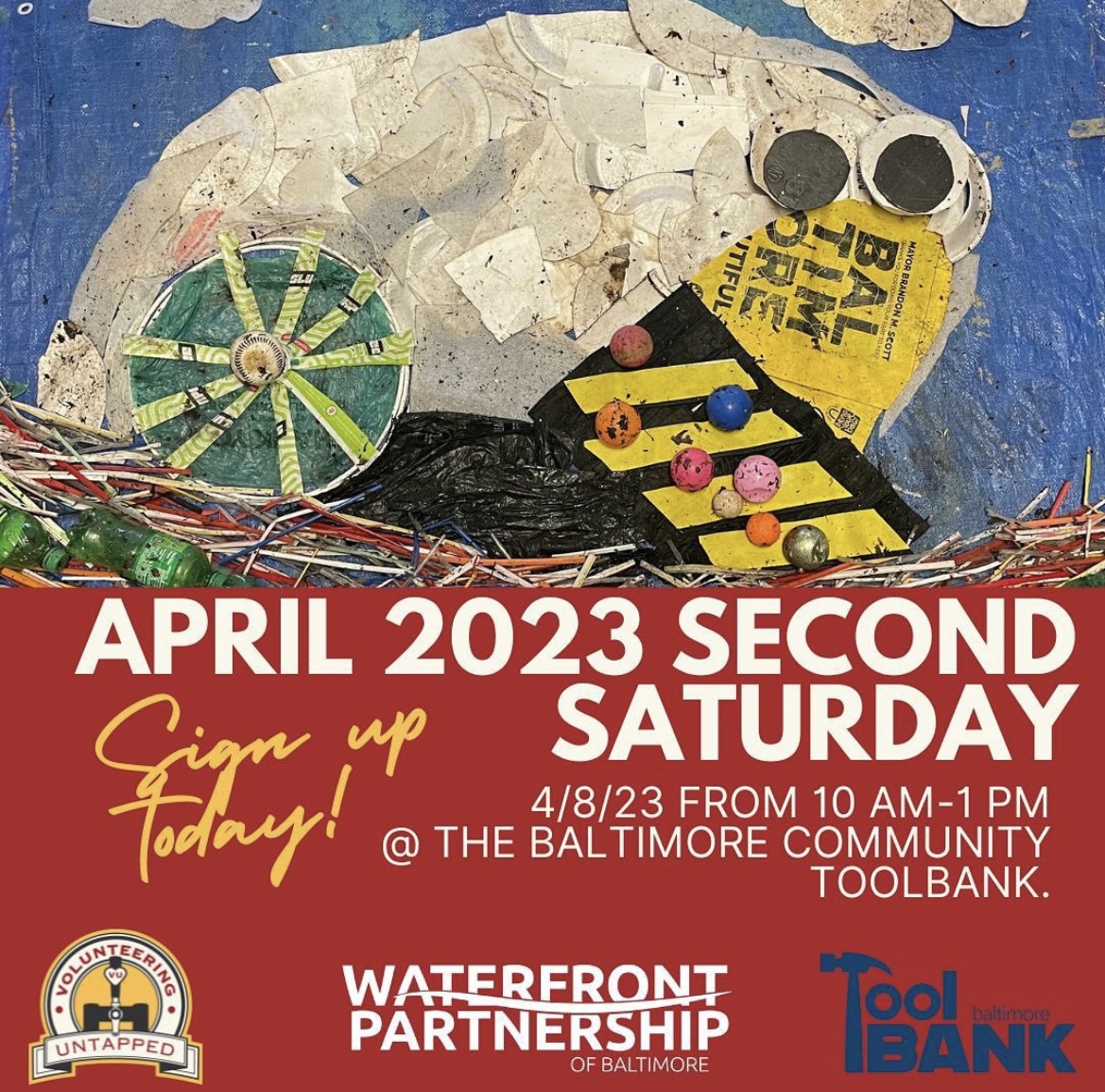This Earth Day, we’re reminded once again that sustainability is not just a want, but a need in the travel industry.
Destinations around the world are showcasing their green initiatives to help lessen the impact that tourism has on our planet.
Check out what these unique destinations are doing:

In Baltimore, Maryland, travelers can celebrate the 10th birthday of the adorable Mr. Trash Wheel family, a series of trash interceptors that remove trash from the Jones Falls River, operated by water wheels and solar cells. Baltimore’s Healthy Harbor Initiative announced the return of Mr. Trash Wheel’s Order of the Wheel, a not-so-secret society that encourages members to complete community cleanup challenges for awards and recognition. At The National Aquarium, visitors can learn about conservation projects currently underway, including an Animal Care and Rescue Center, a Dolphin Sanctuary and a Waterfront Campus. The Aquarium also hosts a series of events, including Voyages: Chapter III, the third instalment of the immersive after-hours event that celebrates the wonders of marine life, which will take place on July 20. Cylburn Arboretum is a 200-acre preserve dedicated to supporting biodiversity. Starting as the private home grounds of Jesse and Edyth Tyson in the late 1800s, the arboretum is like stepping back through time and witnessing firsthand how plants grow and evolve with longevity.

In Barbados, visit the first island in the Caribbean to create goals to achieve 100% renewable energy by 2030 and a 70% carbon neutrality goal by 2050. Barbados has created the largest fleet of electric buses in the Caribbean, leading the way in sustainable transportation. Recent investments of $50 million over the next 15 years seek to conserve at least 30% of Barbados’ marine assets, only 1% of which are currently protected. Barbados also provides several experiences for travelers to visit more mindfully, including the Barbados Sea Turtle Project, welcoming some guests to participate in leatherback nest counts from April to June. Visitors can help build kitchen gardens while learning about hardy “hurricane-proof” food – locally called “ground provisions” – like cassava, eddoes, sweet potatoes, and turmeric. Other programs welcome travelers to participate in beach cleanups or plant a fruit tree while decreasing carbon emissions as part of Barbados’ 2050 commitment to higher carbon neutrality.
In Chattanooga, Tennessee, the city boasts 30+ LEED Certified buildings including the Chattanooga Airport which was the first LEED Platinum certified aviation terminal. The Chattanooga Convention Center was the first center in the nation to incorporate “day lighting” technology in the exhibit halls, allowing natural sunlight to filter in through 30-foot ceilings. A free electric shuttle is available for transportation throughout the downtown district and the Bike Share Transit System includes over 400 bicycles and 40 stations throughout the downtown area. Many restaurants offer farm-to-table menus including Public House, Whitebird, The FEED Co. Table & Tavern and more. The Tennessee Aquarium has demonstrated various sustainability efforts including recycling, composting, the use of energy-efficient appliances and reusing water in some exhibits. The LEED certified facility includes landscaping with native plants found in the Tennessee River Gorge and collects rainwater in a 6,000-gallon cistern to supply greywater for reuse in the building. Ruby Falls is the first U.S. attraction to become Green Globe certified and has been awarded Green Globe’s Sustainable Leadership Award.

In Florida, it’s all about organizing to effectuate real change. One group called Florida Society for Ethical Ecotourism certifies eco-tour operators that commit to “best practices” for ecological sustainability – which is vital for a state with so many natural resources. The Florida Wildlife Federation has been and continues to be a leading advocate for the conservation of Florida’s magnificent fish and wildlife for 78 years. The Florida Green Lodging Program designates lodging that makes a commitment to conserve and protect Florida’s natural resources. Across the state, accommodations including Carriage Way Inn, St. Francis Inn, the Hyatt Coconut Plantation, Pink Shell Beach Resort & Marina, Tarpon Lodge, and Grande Lakes Orlando are all fresh choices for travelers looking for greener getaways in the Sunshine State.
In Kissimmee, Florida, the Gaylord Palms Hotel and Convention Center has been awarded the Florida Green Lodging Program certification for their commitment to preserving Florida’s natural resources. In addition, the property has received a TripAdvisor Green Leaders certified property recognition thanks to various programs aimed at reducing their water and carbon footprint. The Island Grove Wine Company at Formosa Gardens is a winery that models environmental responsibility with sustainable agriculture practices, including natural fertilizing and permaculture. Many attractions protect and preserve Central Florida’s natural beauty and wildlife, including Disney’s Animal Kingdom Theme Park, which cares for its animals and works to bring species back from the brink of extinction.
In Loudoun County, Virginia, it’s all about greener production of what’s on plates and in glasses for visitors. Known for its wine, one of the region’s top vineyards, Sunset Hills Vineyard, turns sunshine into wine and electricity. They installed 245 solar panels to catch the sun’s energy, providing clean, sustainable power for about 75% of their annual needs. The Vineyards & Winery at Lost Creek also uses sustainable farming methods to make wine. Then there is Chrysalis Vineyards at the Ag District where the wine is made from grapes grown on the property, the cheese comes from a herd of dairy cows, and the ciabatta, baguettes and pizza dough is made from wheat in the surrounding fields. Beyond wine, Wheatland Spring Farm + Brewery focuses on creating beer with natural water sourced on their land and ingredients from their farm, including grains, herbs, vegetables, yeast and honey. And At Endless Summer Harvest farm in Purcellville, the lettuce and salad greens – watercress, sorrel, etc. – are grown hydroponically in hi-tech greenhouses. Visitors can dine at the Restaurant at Patowmack Farm outside Lovettsville where mushrooms and herbs are foraged from the surrounding hills.

In Louisville, Kentucky, travelers will be glad to know it was the first southern city to commit to 100% renewable energy in 2020, hoping for 100% clean energy community-wide by 2040. Visitors can literally drink in the efforts as the Louisville Water Company brands its clean drinking water, linking it to its unique industries, notably its bourbon industry. Their efforts won an award at the Sustainable Water Utility Management Award. The Louisville Metro Government partnered with the Kentucky Solar Energy Society and the Louisville Sustainability Council to launch the Solar Over Louisville solarize campaign to give households in Louisville/Jefferson county the opportunity to go solar. Arriving in Louisville is greener for visitors, too, as the Louisville Regional Airport Authority launches a new geothermal project at the Louisville Muhammad Ali International Airport, set to be the largest airport geothermal system in the country. The Midwest’s first climate-adaptive park is taking over the north side of the Ohio River, just across from Louisville in Indiana – Origin Park. When complete, it will span 600 acres of former wasteland lining the river. Origin Park will join the likes of New York’s Central Park and Tulsa’s Gathering Place as a soon-to-be iconic greenspace that exemplifies how successful urban parks can be.joining green spaces like Olmsted Parks System, Waterfront Park, and Parklands of Floyds Fork.
In Miami, Florida, Sodexo Live! and the soon-to-open Rum Room restaurant and Venu event space at the Miami Beach Convention center have announced the launch of a new sustainability project, its herb and vegetable garden, organized with Compost for Life Miami. The composting community initiative takes leftover organics from the conventions and events that take place at the Miami Beach Convention Center and turns them into compost. Hotels like 1 Hotel South Beach achieved LEED Silver certification; Miami Beach EDITION occupies a historic property originally built in the 1950s, which it restored into a LEED certified hotel; The Palms Hotel & Spa is a classic eco-conscious hotel in Miami Beach and is recognized by the Florida Green Lodging Program; and Cadillac Hotel & Beach Club became the first LEED certified hotel in Miami Beach in 2014 when it was renovated. Visitors can dine sustainably at EST.33 Thai Craft Brewery & Kitchen, PLANTA, The Restaurant at The Palms, and True Food Kitchen that each have their own special take on green-mindedness. Learn more about Miami’s sustainability efforts here.

In Monaco, the second-smallest independent state in the world is emerging as a leader in planet preservation where the monarch committed to reducing the principality’s carbon emissions in half by 2030, going carbon neutral by 2050. Looking to the future, an eco-district, the Mareterra, will open in 2025. A transformational project for Monaco, Mareterra will be a beautiful new addition to the Mediterranean coastline that embraces the ecology of both land and sea. In the meantime, Monaco expanded public transportation options including biodiesel buses, electric shuttle boats, e-bike-sharing, and an e-car-sharing system. Monaco wants zero single-use plastic waste by 2030. Single-use plastic bags were banned in 2016; straws in 2019; and plates, cups, glass, and cutlery in 2020. Conscious consumption is also present in Monaco’s culinary offerings through reducing food waste (thanks to “La Petite Boite” initiative) and Terre de Monaco, a Monegasque organic urban rooftop farming project. Monte-Carlo Beach and Monte-Carlo Bay received the prestigious Green Globe Gold certification for sustainability efforts, including a preservation zone for local birds while solar panels have powered Monte-Carlo Bay for three years. Calculate your CO2 footprint of your trip to Monaco here!
In St. Louis, Missouri, one of the nation’s largest Earth Day celebrations, St. Louis Earth Day Festival, takes place this April. This community tradition showcases local entertainment and local Green Dining Alliance restaurants. The organization 2023 earthday365 is again collaborating with community partners and stakeholders who share our goal of elevating our community’s creative leaders. Awards will provide an opportunity to recognize leadership in areas of utmost importance including climate, food, waste, education, and environmental justice. Winners will be announced during the celebrations from April 22-23, 2023 at the Muny Grounds in Forest Park. All year long, the City’s Sustainability Plan applies a lens of society to focus on the overall quality of life for those who live, work and play in the city.
In San Luis Obispo, California, the Keys for Trees program operates where hoteliers pledged to donate a percentage of revenue to the planting of 10,000 trees by 2035, when SLO will be a carbon neutral community). SLO has a history of greener living as the first city worldwide to ban smoking (1990) that also brags about not having drive-in restaurants. SLO built the first solar-powered movie theater as well as the first city-sponsored anaerobic digester for green waste collected from local restaurants. Visitors can enjoy 4,000 acres of protected open land with 60 miles of trails. Local wineries are sustainably run through the SIP certification. A local brewery even grows its own hops for beer making. The SLO Car Free program, which aims to have half of all local trips take place outside of private vehicles by 2035 includes a partnership with Amtrak for 20% off fares coupled with discounts to local businesses.
In Vienna, quality of life and sustainability go hand in hand – and visitors can experience it all firsthand. Resource efficiency and the climate crisis are big challenges for cities around the world and Vienna is taking up these global issues with flying colors, thanks to an innovative Smart City strategy. Vienna seeks to double its renewable energy output in the metropolitan area by 2030. The city will cut CO2 emissions of the transport sector by 50 percent by 2030 and by 100 percent by 2050. It will also maintain the proportion of green space of more than 50 percent in the metropolitan area by 2050. With a host of sustainable hotels and a commitment to clean water that is a major feature of travelers’ experiences, it’s also host to 6,000+ beehives for around 700 city beekeepers.
In the U.S. Virgin Islands, traveling green is mandatory as visitors must use mineral sunscreen to help preserve the beaches and wildlife. Visitors can enjoy six national parks across the three islands with biodiverse reefs like the Buck Island Reef National Monument in St. Croix. St. John alone has 11,500+ acres of protected land. Visitors can participate in volunteer projects like beach cleanups, learning to grow their own food at a Green Globe-certified farm and other hands-on educational activities. There are events that promote sustainability like AgriFest in St. Croix while the Virgin Islands Campground on Water Island offers several self-sustaining cottages. Lovango Resort is a fully sustainable accommodation that is off the grid. Sustainable dining and farm to table experiences at Ciboné in St. Croix and Caribbean Fish Market in St. Thomas are solid choices for a unique culinary experience.







